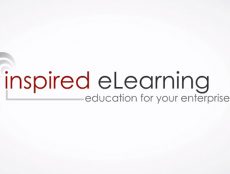
High school is an important phase developmentally for all people, as it lays the groundwork for a healthy adulthood. These are the years when kids master mature thinking, goal-setting, relationship-building, and critical thinking. They’re also the years when they start solidifying their core characteristics or the “soft skills” that make them who they are and make them desirable to hiring managers.
These soft skills — the non-measurable, interpersonal skills and characteristics of a person — are just as important as the “hard skills” we gain from studying so hard and getting good grades for four years. Where foreign languages, math skills, and technology know-how are considered core hard skills that make you technically qualified for a job, soft skills like being a team player and having good communication make you more likely to get hired.
10 Soft Skills to Learn in High School
Because of this, one of the best pieces of career advice to give to your high-schooler (or yourself, if you’re the high-schooler) is to focus as much on those soft skills as the SAT scores, grades, and awards that will eventually be put on college applications. Explore the list of soft skills below to discover some great ones to hone.
Collaboration
High school is often the first time a person is asked to work in a group for a project or presentation, and the experience can be genuinely formative. In group work, kids naturally sort themselves out — leaders emerge while the less-engaged fade into the background — and discover their strengths and weaknesses as they pertain to working with others. The ability to collaborate and be a team player is crucial in the modern workforce, so it’s definitely a skill to master.
Self-Confidence
Similarly, high school kids spend much of their time in exploratory phases that may lead to strong or weak levels of self-confidence. Positive reinforcement and encouragement of self-exploration help kids grow into strong, self-assured adults who trust themselves when trying new things. Sports, hobbies, and time with friends all help students build up their self-confidence.
Critical Thinking
The earliest instances of critical thinking tend to happen in the pre-teenage years, and it’s important that parents and teachers foster them. This skill is all about having the ability to question oneself and others, and to understand that not everything is as it looks or seems. Critical thinking is thought to help students better navigate their entire lives, even after they graduate.

Work Ethic
Research shows that establishing work ethic through chores in childhood can lead to success and greater responsibility in adulthood. The pre-college years are vital in helping youngsters build a positive relationship with the things they may not necessarily want to do — tasks around the house, homework, etc. — and this helps them find joy in these things so they continue to do them.
Leadership
Whether or not a person’s leadership style is forged by nature or nurture is debated, but we do know that some people aren’t “natural-born” leaders and some show leadership signs early in childhood. Regardless, all students have the potential to become leaders in those formative years, especially in high school. High-schoolers hone leadership in programs like sports, debate club, peer tutoring, community service, the arts, and student government.
Communication
Throughout their time in grades nine through 12, students need to learn how to communicate with one another. Good communication skills are practiced through conversation, listening, speaking, and writing, but also through empathy and introspection. The most desirable employees and most impressive college applicants tend to have solid written and verbal communication skills.
Creativity
Though kids learn and explore creative concepts long before they get to high school, the high school years are when they tend to advance into more complex ideas. Students who show interest in creative endeavors should be encouraged, while students who struggle in this area should know that it’s worth the time to find at least one creative outlet that piques their interest.

Good Listening
Being a good listener is one of those personality traits that few people are actually taught. But it’s also one that makes a massive difference in interpersonal relationships, emotional maturity, and the ability to feel empathy. Good listening goes beyond conversation, too. Lengthy lectures and presentations require a keen ear, and that will get you far long after you graduate from high school.
Self–Monitoring
Self-monitoring refers to one’s ability to measure and compare certain behaviors against a standard and then make efforts to change or control the self. It also refers to how well an individual adapts to social situations.In other words, it involves being self-aware and having the desire to constantly self-improve and meet the social needs of the situation. The ability to self-assess one’s own behavior and approach it with critical thinking can help build leadership, social skills, emotional regulation, and adaptability.
Self-Acceptance
As important as it is to know how to properly adapt to certain environments and emotions, it’s also key for high school students to learn how to accept themselves wholly, especially if they do not fit the mold or standard of what’s demonstrated around them. Accepting the self leads to higher levels of self-esteem, which in turn leads to more motivation and a more positive attitude.
A Lifelong Pursuit
Keeping these soft skills in mind is essential when building a career or trying to reach a goal of any sort. However, the difference between soft skills and hard skills is that soft skills are not easily measured or mastered. Yet, like hard skills, they require practice and can be bettered by good examples. For most people, building a strong repertoire of soft skills is a lifelong pursuit that begins in early high school and extends throughout life.
Featured Image: Alyssa Ledesma, Unsplash.









One Comment